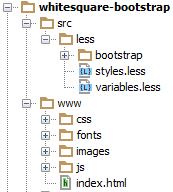 People are talking about you and your brand online.
People are talking about you and your brand online.
But are you listening?
Are you proactively building and managing your reputation?
If your answer is NO, now would be a good time to ramp up your efforts and take control over how people perceive your company, products, and services in the online world.
In this article, we share some actionable tips on how to track and manage your reputation online.
Track mentions of yourself, your company, and products
This one is a no brainer – you have to monitor what people are saying about your company and your products or services.
Negative comments travel at the speed of light in the online space. If you don’t catch them and react on time, they can negatively affect how people view your business.
Luckily, there are tools out there that you can use to make sure you never miss a mention of your brand or product name. One such tool is Brand24. When someone mentions you – you’ll know immediately and you’ll have an opportunity to react.
For example, if someone wrote a positive tweet about your product, you can retweet and thank them. You can also respond to a dissatisfied customer before things get out of hand, get involved, and offer a solution!
The key to effective online reputation management is acknowledging the mentions of your brand so you can minimize the negative comments and amplify the positive ones.
Learn more about How to Use Brand24 for Brand Monitoring.
Register with your brand name on key social media sites
You probably think that registering on a social media site like Pinterest does not make sense if you don’t plan on using them, right?
Wrong!
I would advise that you register on ALL major social media sites using your brand or business name (or your name if you have a personal brand) and secure the ownership of your name on those sites.
Why risk having someone else use your brand name for something completely unrelated when registration costs nothing?
You can use Knowem to check for the use of your brand name on every single social media site out there. Ideally, you will use the same username across all your social accounts.
Track and encourage reviews online
In the online world, your brand ambassadors and detractors have the equal opportunity to voice their opinions. Consumers hold all the power and they can use it to shape the online perceptions of your company. Their words become the social proof your potential customers are looking at when assessing your company’s reputation.
So instead of fearing negative reviews, or worse, pretending they don’t exist, you should take a proactive approach to online reviews.
Always respond to negative reviews with a solution. Being silent about it will only make things worse!
Develop a system to encourage reviews and ensure your happy customers can easily submit their feedback. Don’t be shy to ask for a review post-purchase, or incentivize your best customers with special offers and feature their testimonials on your website or social media.
Create consistency across social networks
Social media networks play a particularly important role in building and managing your online reputation.
And consistency across your social media profiles has a lot to do with that. It helps people discover and remember you and sends the message that your brand is reliable.
In general, this could mean keeping color schemes, logos, and layouts similar on all your profiles. But it also means making the effort to keep your messaging consistent and on brand.
Plus, you should also keep some consistency with the content you publish on each social network. For example, you can use the same filter on Instagram photos or use similar image styles.
When it comes to managing online reputation, monitoring your social media footprint is also important – e.g. using a tool such as BrandYourself to scan your social media posts so you can find and delete any older posts that could affect your reputation.
Note: You can also use BrandYourself to keep tabs on your online reputation. The tool lets you check your search score by looking at your top 10 search results on Google. You can then take action to keep your score high and boost your positive links higher up the ranking.
Track and remove spammy links
Spammy links are a part of negative SEO. They can hurt your website’s Google ranking as well as your online reputation.
Negative SEO is typically a result of a competitor or a hacker intentionally trying to bring down your search engine rankings using black hat tactics.
If someone is creating lots of poor quality links to your website – you need to be aware of this!
A tool such as MonitorBacklinks.com can help. The tool will provide you with a list of all your website’s backlinks together with metrics that show how valuable (or not) each link is. Low-quality backlinks will have a warning sign next to them so you can review them and decide which ones need to be removed.
So how do you remove spammy backlinks?
One way to go about it is to send a link removal request to the webmaster of the website. If they don’t remove the link, you can use the disavow tool. This will tell Google that you don’t want specific link/s to be factored in when assessing your website.
Build your influence
We all know the power that great content has to engage audiences, shape opinions, and even affect purchase decisions.
If created strategically, content can help you build authority and earn the reputation of being a thought leader in your industry. Creating great content both on your blog and on high-authority sites will build your influence, but it will also help you get to the top of Google’s search results for your main keywords.
Each piece of valuable content you create will help build up your domain authority and your online reputation.
Summary
If you don’t actively monitor and improve your online reputation, you’re missing out on a huge opportunity to grow your brand, earn social proof, and drive new business.
The tips I shared in this article will help you get you on the right track to building a stronger online reputation.
How are you managing your online reputation? Are there any tips you’d add to the list?















































